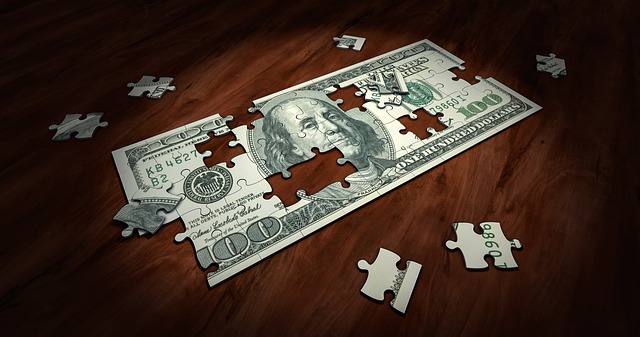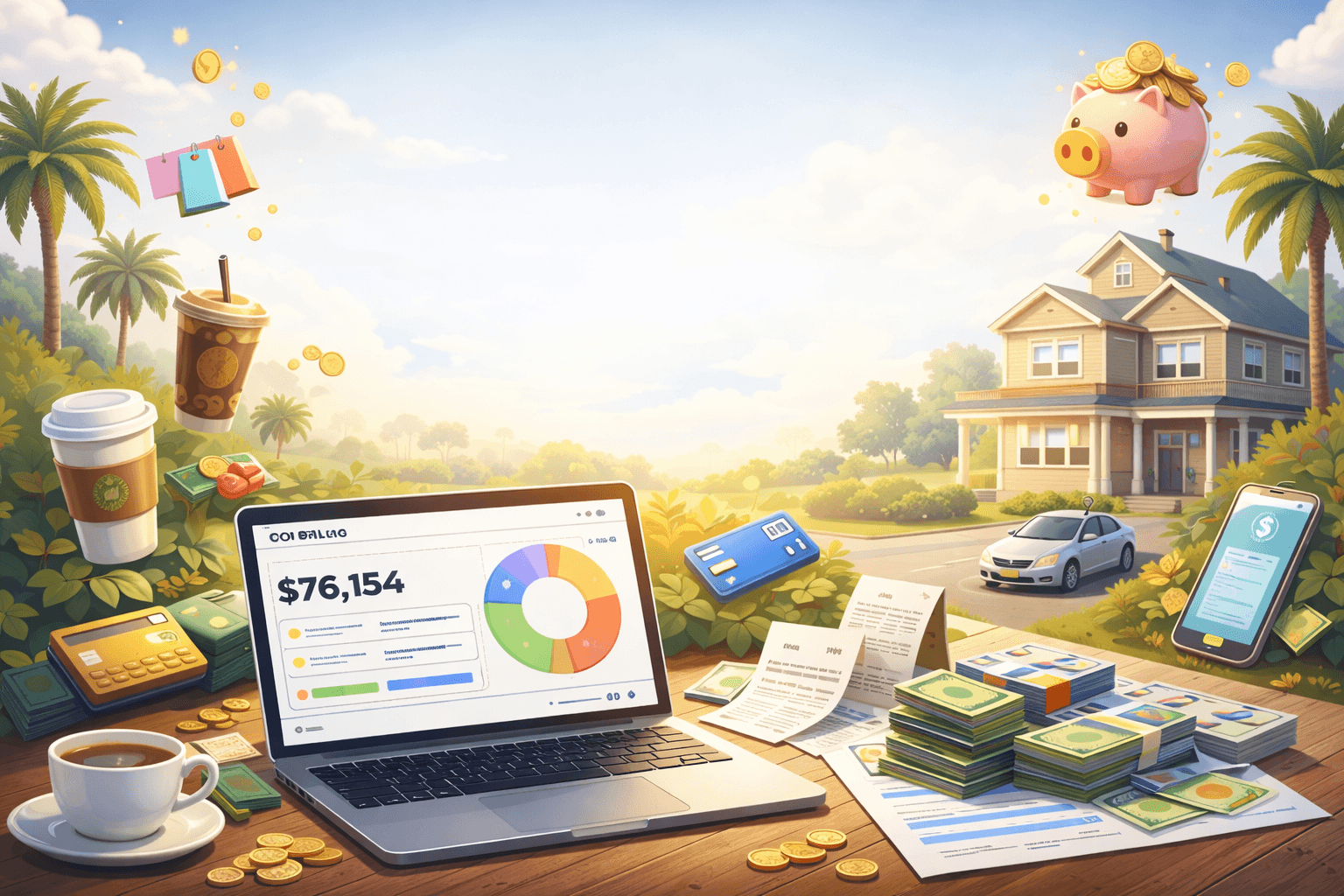I made $335,000 but spent $285,000 -- the Common Sense Way to Build Wealth
Did you know that 40% of Americans cannot afford a $400 emergency? And that 60% of Americans cannot afford a $1000 emergency? We live in a society where people carry thousand dollar iPhones, drive brand new cars, are proud Netflix and cable TV subscribers, yet they are living paycheck to paycheck.

If you’re making a decent living and wondering why your net worth is stagnant, I feel you. For my first 4 years out of college, my net worth went up a total of only ~$50,000. I was single, my income ranged from $65,000 to $113,000 during those 4 years, and I still couldn't figure out how to build significant wealth.
As seen in Figure 1.1, over the course of my first 4 years as an engineer, I made a total of $335K.
[caption id="" align="alignnone" width="1010"] Figure 1.1 * = I had a full scholarship and worked 10-20 hours a week during college to accumulate $30K [/caption]
Figure 1.1 * = I had a full scholarship and worked 10-20 hours a week during college to accumulate $30K [/caption]
Of the $335K, I only managed to save $50K--$19K in investments and $30K in cash. What happened to the other $285K? Between my Mint account, my memory and my math, here is the break down:
[caption id="" align="alignnone" width="482"] Figure 1.2 ** = I had to pay back my employer because I left 10 months into the job to move to a different job [/caption]
Figure 1.2 ** = I had to pay back my employer because I left 10 months into the job to move to a different job [/caption]
Essentially I spent around $2,400 a month for 4 years, not including my rent and car. I was not living a particularly lavish lifestyle, considering I spent the majority of my time in high-cost-of-living (HCOL) areas, but I was certainly comfortable. In my 5th working year, I got a pretty sizable pay bump totaling $180K per year. With the extra money, it made me think about my personal finances--something I rarely gave thought to at the time. And that was the tipping point that indirectly led me to this journey.
Up until that point, all I had was ~$20K in investments and over $60K in cash. I knew I had to do something different. For the money that I was making, I felt I should be doing better.

In the Winter of 2012, I went home to visit my parents. All of my high school friends were talking about medical school, residency, student loan debt, and how much money they’d make afterward. But no one talked about how to manage their wealth. We were all being professionally trained on how to make money, but none of us were taught how to handle money. I was determined to do better. So I spent the week between Christmas and New Year to begin educating myself on personal finance. It was never a goal to get really wealthy. I simply wanted to not be dumb with money—and that I was maximizing what I had. Ultimately, what I learned during that Christmas vacation can be boiled down into 4 key takeaways:
-
Numbers provide me with clarity, direction, and peace. I used Mint.com to reflect back and I used a spreadsheet to project forward on my finances. This was the first time I actually analyzed my credit card bills and realized that I was spending around $1200 a month for food and drinks. It was the first time I had seen all 13 bank accounts in an aggregated view. And it was also the first time I believed that I will be a millionaire before 50 years old. The sense of clarity and direction gave me the ultimate financial peace. Even though I knew I was not maximizing what I had, I felt ahead of the game. That spreadsheet has since been thrown away and at least 20 versions later, it is still being religiously used.
-
I will be a millionaire. After looking at the spreadsheet, I knew that if I stayed the course, I will have over $1M before 50 years old. I had never heard about FIRE or even FI. Growing up in a small town in America’s south, I never dreamed of actually having a million dollars. And yet this spreadsheet has clearly mapped that out.
-
I need to invest more. I had hit an inflection point in my life where I felt financially secure, but I wasn’t able to grow my nest egg beyond that in a meaningful way. I had a $60K emergency fund that was only growing linearly. I knew my only way to “bend the curve” was through some form of investment...little did I know how much this curve would bend over the next several years.
-
I need to learn about the stock market. I knew how the stock market worked, and how you buy and sell shares--but very little else. I couldn’t tell you the difference between an index fund vs an individual stock. I couldn’t tell you what a dividend yield was. I had no idea how taxes on stocks worked. But I knew I needed to learn. And I am still learning.
(adsbygoogle = window.adsbygoogle || []).push();
It has been 7 years since that Christmas vacation when I took a deep look at my personal finances. I’ve spoken to many different people about theirs as well. From unemployed to high-income individuals, from people in 6-figure debt to multi-million dollar net worth. When I reflect back on what the critical tipping point for me was, it was pretty clear. Once I was able to make enough to live and had no debt, any extra dollar was a weapon that I can use to “bend the curve”. Unfortunately, too often people choose to buy the new car, the new house, the fancy vacation, or in general, upgrade their standard of living.
Here is the common-sense way of building wealth (in order):
-
If you don’t have any money left over at the end of the month, cut expenses and/or increase income
-
Get out of consumer debt
-
When you have additional savings each month, build up an emergency fund of at least 3 months of expenses
-
When you complete step 3 and have additional savings each month, aggressively invest (e.g. index funds, real estate).
-
Upgrade your standard of living only after you’ve met certain net worth milestones that you set for yourself.
Step 4 is where the wealth building really kicks in because your money is working for you. Step 4 is also the point at which all young professionals should strive to get to as soon as possible. The power of compounding is real—check out my previous blog post on how compounding can make the average American family a millionaire.
For me, I was mentally stuck in step 3. I never took the effort to think about steps 4 and beyond. This is true for a lot of working professionals as well. I know a lot of engineers with 6-figure checking accounts and nothing invested. Fortunately, it can be fixed with financial education, a mindset shift, and taking action.
But for the 60% of Americans who cannot afford a $1000 emergency, it’s unfortunate. They are stuck in step 1 or 2. The mindset shift may only come when they can see the light at the end of the tunnel—when they have hope. I strongly believe that most Americans feel like I did, that they will never be a millionaire. History and math say otherwise.
(adsbygoogle = window.adsbygoogle || []).push();
If you enjoy this content, please consider following me on my Facebook Page for the latest.
Enjoyed this post?
Subscribe to get my latest posts on financial independence, investing, and the journey to FIRE delivered straight to your inbox.
More Posts

5 Things I'm Focused On In 2026

How much did I spend in 2025???

Comments